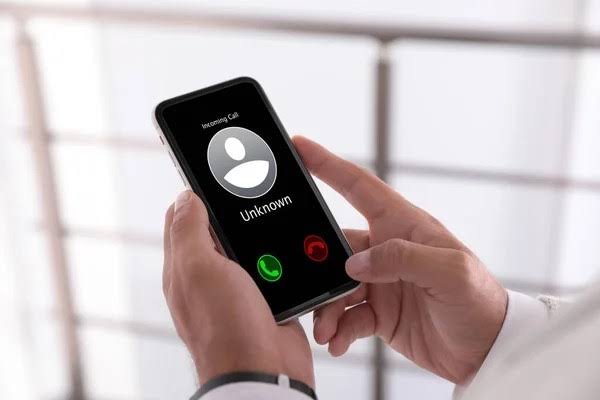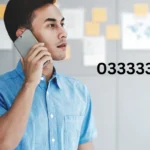In an era of increasing digital communication, phone numbers like 01746802113 can raise curiosity and concern. Whether you’re cautious about potential scams or simply curious about an unknown caller, understanding the nuances of such numbers is crucial. This article delves into the specifics of the caller ID 01746802113 in Germany, exploring the significance of the “017” area code, the types of calls people might receive from this number, common scenarios for such calls, and the risks associated with them. We’ll also provide practical advice and FAQs to help you handle these calls with confidence, ensuring your safety and privacy.
The Significance of the 017 Area Code
In Germany, mobile phone numbers often start with the “017” prefix, followed by a sequence of digits that vary depending on the carrier. The “017” area code is not tied to a specific geographic region; instead, it indicates that the number is associated with a mobile phone. This prefix is commonly used by several mobile network providers, including Telekom, Vodafone, O2, and others. The digits following the “017” area code often help identify the specific carrier, although this has become less distinct due to number portability.
The specific number 01746802113 does not provide clear information about the carrier or origin. However, the “0174” segment suggests that it may have been initially assigned to a Vodafone user, although it could now belong to a subscriber of a different network due to number portability. Understanding the area code helps in identifying the type of communication and setting expectations regarding the call’s origin.
Read More About: 03333395047
Types of Calls from 01746802113
When receiving a call from 01746802113, the nature of the communication can vary widely. Here are some common types of calls people might receive:
- Telemarketing and Promotional Calls: Many companies use mobile numbers to contact potential customers with promotional offers or to conduct surveys. These calls can range from harmless sales pitches to more aggressive marketing tactics.
- Customer Service and Support: Some legitimate businesses use mobile numbers for customer service. If you’ve recently interacted with a company, they might call you back from such a number to resolve issues or provide updates.
- Scam and Fraudulent Calls: Unfortunately, not all calls from unknown numbers are benign. Scammers often use mobile numbers to impersonate legitimate entities, such as banks, government agencies, or service providers. These calls may attempt to trick you into sharing personal information or transferring money.
- Personal and Social Calls: Occasionally, you may receive calls from acquaintances or individuals you know, especially if they have changed their phone numbers or are using a different device.
Common Scenarios for Calls from 01746802113
Several scenarios might explain why you’re receiving a call from 01746802113. Here are a few:
- Unsolicited Telemarketing: You might receive calls promoting products or services you haven’t shown interest in. This is common with mobile numbers as companies attempt to reach new customers.
- Phishing Attempts: Fraudsters may call you pretending to be from your bank or another trusted organization, asking for sensitive information like account numbers, passwords, or PINs.
- Missed Calls for Call Back Scams: Scammers often use missed call tactics to lure individuals into calling back. These numbers may lead to premium-rate lines, resulting in hefty charges.
- Survey and Research Calls: Companies and research organizations frequently use phone surveys to gather consumer opinions. While not always harmful, these calls can be intrusive.
Potential Risks and Safety Measures
Receiving a call from an unknown number like 01746802113 can pose various risks. Here are some potential dangers and how to protect yourself:
- Phishing and Identity Theft: Scammers may attempt to collect your personal information. Never share sensitive details over the phone unless you’re certain of the caller’s identity.
- Financial Scams: Calls requesting money transfers, credit card details, or bank information should raise red flags. Always verify the caller’s identity independently before taking any action.
- Malicious Links and Downloads: Some calls may encourage you to visit specific websites or download apps. These can be malicious and compromise your device’s security.
- Robocalls and Spam: Automated calls can be disruptive and annoying. They often target a wide audience, trying to sell products or services.
Safety Measures
- Do Not Answer Unknown Numbers: If you’re unsure about a caller’s identity, let the call go to voicemail. You can assess the message later and decide whether to respond.
- Use Caller ID and Call Blocking: Many smartphones have features that identify and block spam calls. Use these tools to filter unwanted communications.
- Verify Caller Identity: If the caller claims to be from a legitimate organization, hang up and call the organization directly using a verified phone number.
- Report Suspicious Calls: In Germany, you can report scam calls to the Federal Network Agency (Bundesnetzagentur). This helps authorities track and address fraudulent activities.
Real-Life User Experiences
Michael, 34, Berlin
“I kept getting calls from 01746802113 at odd hours, but they never left a message. One day, I picked up out of curiosity, and it was a recorded message offering an insurance plan. The whole thing felt off, so I hung up immediately. I did some research and found out it might be a scam. I blocked the number, and I haven’t been bothered since.”
Anna, 27, Munich
“One afternoon, I received a call from this number, and the person on the other end claimed to be from my bank, saying there was unusual activity on my account. They asked for my account details to ‘verify’ my identity. It sounded suspicious, so I hung up and called my bank directly. They confirmed it was a scam attempt. I reported the number to the authorities to warn others.”
Lukas, 45, Hamburg
“I got a call from 01746802113 asking me to participate in a survey about consumer products. The caller seemed polite and professional, so I answered a few questions. They didn’t ask for any personal information, which made me feel more comfortable. I later checked and found that the company was legit. It’s a good reminder that not all unknown calls are bad, but it’s always good to be cautious.”
FAQs
Q1: How can I find out who called me from 01746802113?
A: You can use reverse phone lookup services to identify the caller. However, these services may not always have accurate information. If the call was suspicious, it’s best to report it.
Q2: Can I block calls from 01746802113?
A: Yes, most smartphones allow you to block specific numbers. This prevents further calls and messages from that number.
Q3: What should I do if I accidentally shared personal information?
A: Immediately contact your bank or the relevant institution to secure your accounts. Monitor your financial statements and report any unusual activity.
Q4: Are all calls from 01746802113 scams?
A: Not necessarily. While many unknown numbers can be associated with scams, some may be legitimate. Use caution and verify the caller’s identity.
Q5: How can I protect myself from phone scams?
A: Stay informed about common scams, use call-blocking tools, and avoid sharing personal information over the phone. Always verify the identity of the caller independently.
Conclusion
Receiving a call from an unknown number like 01746802113 can be unsettling. While the “017” area code indicates a mobile number in Germany, it provides little information about the caller’s intentions. Whether the call is from a legitimate business, a telemarketer, or a potential scammer, exercising caution is essential.
To handle such calls confidently, prioritize your safety and privacy. Use caller ID features, block unknown numbers, and report suspicious activities. Remember, legitimate organizations will never pressure you to share sensitive information over the phone. By staying vigilant and informed, you can navigate the complexities of unknown calls and protect yourself from potential risks.









